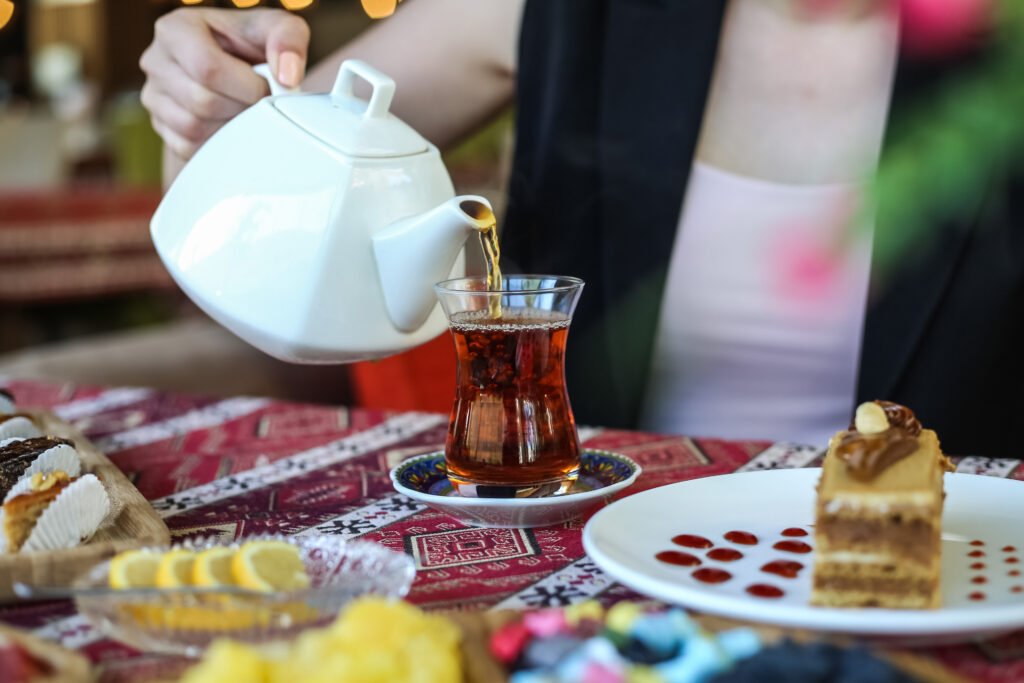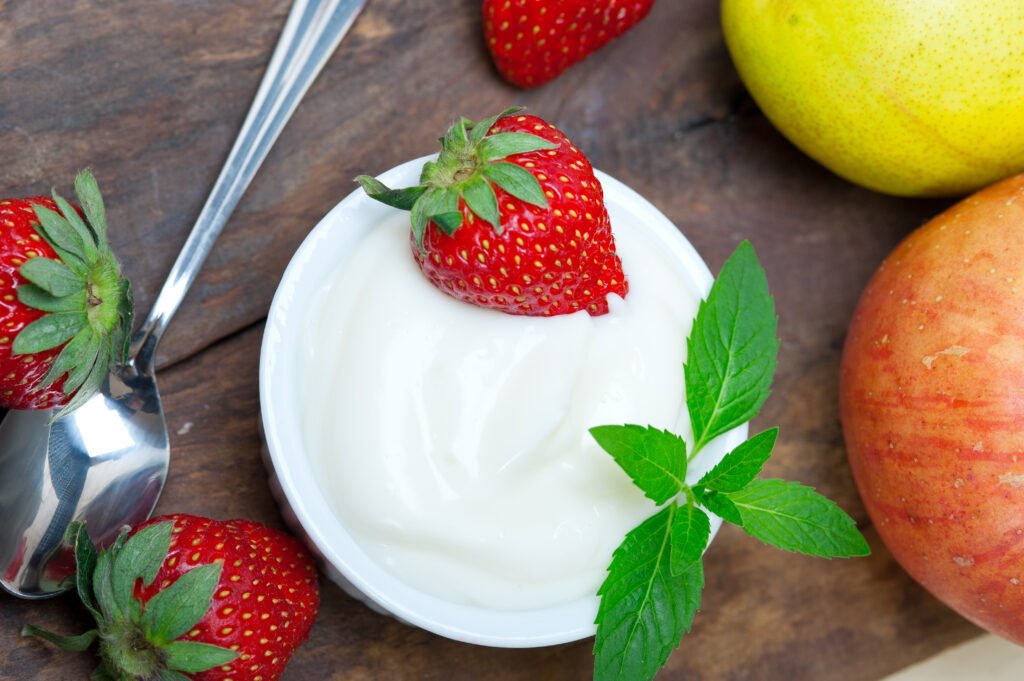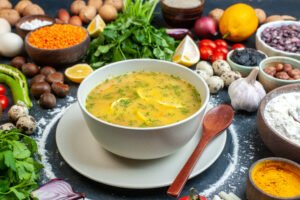
How Can I Calm Down My Gastritis?
Living with gastritis can be a daunting experience, as the inflammation of the stomach lining can lead to persistent discomfort and disrupt daily life.
Managing gastritis effectively often involves a multifaceted approach that includes lifestyle adjustments, dietary modifications, and targeted interventions to alleviate symptoms and promote healing.
In this comprehensive guide, we’ll explore various strategies for calming down gastritis, ranging from natural remedies to soothing drinks, and delve into considerations for healing time.
Can Gastritis Kill You?
While gastritis itself is typically not life-threatening, severe or chronic cases can lead to complications if left untreated. Complications may include stomach ulcers, bleeding, and, in rare instances, stomach cancer.
It’s crucial to seek medical attention if you experience persistent symptoms of gastritis, such as abdominal pain, nausea, vomiting, or blood in the stool, to prevent potential complications.
How to Relieve Gastritis Pain Fast at Home Using Natural Remedies – Does It Work?
Natural remedies can offer significant relief for gastritis symptoms and may complement conventional treatments.
Some individuals find relief from symptoms through dietary changes, such as avoiding spicy foods and alcohol, and incorporating soothing foods like yogurt and oats.
Additionally, herbal remedies like ginger and chamomile tea are popular choices for their purported anti-inflammatory properties.
5 Easy Steps and Routine to Relieve Gastritis Pain Fast at Home Using Natural Remedies
Living with gastritis can be uncomfortable, but there are simple steps you can take at home to alleviate pain and discomfort using natural remedies.
Follow these five easy steps and incorporate them into your daily routine to find relief from gastritis symptoms quickly:
Step 1: Herbal Tea
Start your day with a soothing cup of herbal tea known for its anti-inflammatory properties. Peppermint, chamomile, and ginger teas are excellent choices.
Prepare a cup by steeping a tea bag or a teaspoon of dried herbs in hot water for 5-10 minutes. Sip slowly and enjoy the calming effects on your stomach.

Step 2: Dietary Modifications
Make dietary adjustments to avoid triggering foods that can worsen gastritis symptoms. Opt for bland, easily digestible foods such as bananas, rice, boiled potatoes, and lean proteins like chicken or fish.
Avoid spicy foods, acidic foods, caffeine, alcohol, and carbonated beverages, as these can irritate the stomach lining.
Step 3: Small, Frequent Meals
Instead of large meals, opt for smaller, more frequent meals throughout the day to ease the burden on your digestive system.
Eating smaller portions helps prevent overloading the stomach, reducing the likelihood of triggering gastritis symptoms. Aim for five to six smaller meals spaced evenly throughout the day.
Step 4: Herbal Supplements
Consider incorporating herbal supplements known for their soothing effects on the digestive system into your routine.
Aloe vera juice, slippery elm, and licorice root supplements may help reduce inflammation and promote healing of the stomach lining. Consult with a healthcare provider before starting any new supplement regimen.
Step 5: Stress Management
Practice stress-reducing techniques such as deep breathing exercises, meditation, yoga, or gentle stretching to alleviate stress and anxiety, which can exacerbate gastritis symptoms.
Incorporate relaxation techniques into your daily routine to promote overall well-being and support digestive health.
Daily Routine

- Morning: Start your day with a cup of herbal tea, such as peppermint or chamomile, to soothe your stomach and reduce inflammation. Follow it with a light breakfast consisting of easily digestible foods like oatmeal or yogurt.
- Mid-Morning: Take a moment to practice deep breathing exercises or meditation to relieve stress and promote relaxation.
- Lunch: Enjoy a small, balanced meal containing lean proteins, whole grains, and plenty of vegetables. Avoid spicy or acidic foods that may irritate your stomach.
- Afternoon: Incorporate herbal supplements like aloe vera juice or licorice root into your routine if recommended by your healthcare provider. These supplements can help support digestive health and reduce inflammation.
- Evening: Wind down with another cup of herbal tea before bed, such as ginger or lemon balm, to aid digestion and promote a restful night’s sleep.
By following these easy steps and incorporating natural remedies into your daily routine, you can effectively relieve gastritis pain at home and support overall digestive health.
Best Morning Drink for Gastritis: What Tea is Good for Gastritis?
When it comes to soothing beverages for gastritis, herbal teas can be a comforting choice. Peppermint tea, known for its ability to ease digestive discomfort, may provide relief from symptoms like bloating and indigestion associated with gastritis.
Chamomile tea is another popular option, prized for its anti-inflammatory properties and potential to calm an irritated stomach lining.
For those with gastritis, avoiding caffeinated beverages like coffee and black tea is advisable, as they can exacerbate symptoms and irritate the stomach lining.
Opting for herbal teas or non-acidic beverages like warm water with lemon can be a gentler choice for starting the day and supporting digestive health.
9 Soothing Morning Drinks for Gastritis: Which Teas Are Beneficial for Gastritis?
- Peppermint Tea
Peppermint tea is renowned for its ability to soothe digestive discomfort. It contains menthol, which has a calming effect on the stomach muscles, reducing symptoms like bloating and gas.
To make peppermint tea, steep one teaspoon of dried peppermint leaves in boiling water for 5-10 minutes, then strain and enjoy.
- Chamomile Tea
Chamomile tea boasts anti-inflammatory properties that can help alleviate gastritis symptoms such as stomach pain and inflammation. It may also promote relaxation and reduce stress, which can contribute to digestive well-being.
To prepare chamomile tea, steep one tablespoon of dried chamomile flowers in hot water for 5-10 minutes, then strain before drinking.
- Ginger Tea
Ginger has long been used as a natural remedy for digestive issues due to its anti-inflammatory and anti-nausea properties.
Ginger tea can help alleviate symptoms of gastritis such as nausea and indigestion. To make ginger tea, simply steep a few slices of fresh ginger root in hot water for 5-10 minutes, then strain and enjoy.
- Licorice Root Tea
Licorice root contains compounds that can help soothe inflammation in the digestive tract, making it beneficial for gastritis.
It may also help protect the stomach lining from irritation. To make licorice root tea, steep one teaspoon of dried licorice root in hot water for 5-10 minutes, then strain before drinking.
- Marshmallow Root Tea
Marshmallow root contains mucilage, a gel-like substance that coats and soothes the stomach lining, making it useful for gastritis relief.
To prepare marshmallow root tea, steep one tablespoon of dried marshmallow root in hot water for 5-10 minutes, then strain before drinking.
- Fennel Tea
Fennel tea is often used to aid digestion and relieve gastrointestinal symptoms such as bloating and gas. It may also have anti-inflammatory properties that can help soothe gastritis symptoms.
To make fennel tea, steep one teaspoon of crushed fennel seeds in hot water for 5-10 minutes, then strain before drinking.
- Green Tea (Decaffeinated)
Green tea is rich in antioxidants called catechins, which have anti-inflammatory properties that may help reduce inflammation in the stomach lining associated with gastritis.
Opt for decaffeinated green tea to avoid potential irritation from caffeine. Simply steep a green tea bag in hot water for 2-3 minutes, then remove the bag and enjoy.
- Lemon Balm Tea
Lemon balm is known for its calming effects on the digestive system, making it beneficial for gastritis relief.
It may also help reduce stress and anxiety, which can exacerbate gastritis symptoms. To make lemon balm tea, steep one tablespoon of dried lemon balm leaves in hot water for 5-10 minutes, then strain before drinking.
- Holy Basil Tea
Holy basil, also known as tulsi, has been used in traditional medicine for its anti-inflammatory and digestive properties.
It may help soothe stomach inflammation and reduce symptoms of gastritis. To prepare holy basil tea, steep a few fresh or dried basil leaves in hot water for 5-10 minutes, then strain before drinking.
These soothing morning drinks offer natural relief for gastritis symptoms and can be enjoyed as part of a healthy morning routine.
Experiment with different teas to find the ones that work best for you and incorporate them into your daily regimen for optimal digestive health.
How Long Does Gastritis Take to Heal?
The healing time for gastritis varies depending on several factors, including the underlying cause, severity of inflammation, and adherence to treatment recommendations.
Acute gastritis caused by irritants like NSAIDs or alcohol may resolve within a few days to weeks with appropriate treatment and lifestyle modifications.
Chronic gastritis, however, may require longer-term management and lifestyle changes to control symptoms and prevent complications.
Healing time for chronic gastritis can range from weeks to months, and ongoing maintenance therapy may be necessary to keep symptoms under control.
In conclusion
Calming down gastritis involves a comprehensive approach that addresses symptoms, promotes healing, and prevents complications.
By incorporating natural remedies, soothing drinks, and adhering to treatment recommendations, individuals can effectively manage gastritis and improve their quality of life.
It’s essential to work closely with a healthcare provider to develop a personalized treatment plan that meets your needs and supports long-term digestive health.












